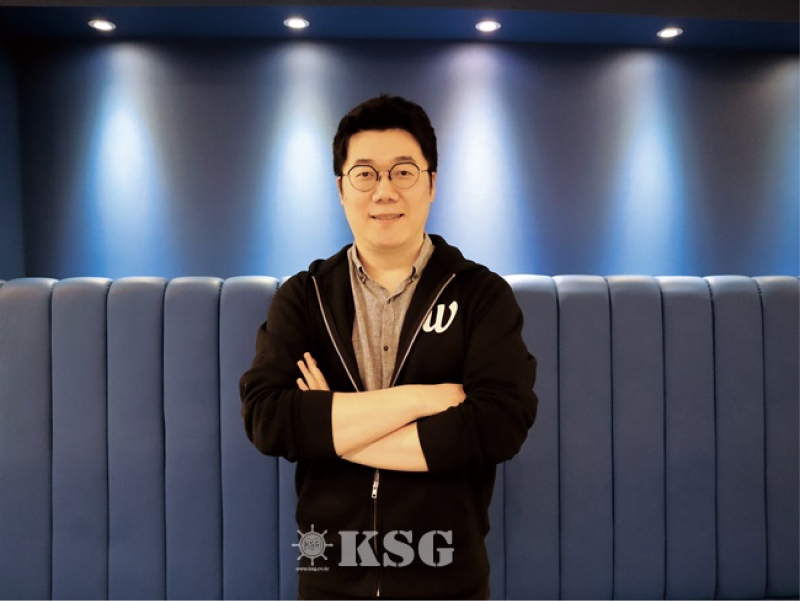Press Room
weraser Wins Grand Prize at the 4th E-commerce Pitching Festa 2024
Update 2024.03.13

AI startup weraser is gaining attention after being recognized for its competitiveness in a project jointly conducted by the Ministry of SMEs and Startups and OpenAI in the US. If selected as a final partner after visiting OpenAI's headquarters in San Francisco in mid-month, it is expected to secure investment and collaboration opportunities.
Kim Hyun-jong, CEO of weraser, who worked at Korea Shipping for nearly 10 years, is accelerating work automation for shipping and logistics companies by developing an API (Application Programming Interface) using the generative AI of ChatGPT developed by OpenAI. Kim emphasized that their logistics work automation platform could be a solution for companies struggling with labor shortages. By introducing the automation platform, companies can reallocate workforce from simple repetitive tasks, thereby improving work efficiency and reducing costs. Here's a Q&A with CEO Kim.
Q. Please introduce your main service, 'WiseConvey'.
WiseConvey was created to maximize work efficiency and productivity in the shipping and logistics industry. It automatically extracts identified information from major electronic documents required for cargo transportation and customs clearance, such as import/export declarations, bills of lading (BL), commercial invoices, purchase orders, and packing lists, and inputs it into various documents like Excel and Word files. The process from extracting text from documents to inputting data takes less than 10 seconds, with an extraction accuracy of up to 99.9%. Also, since it provides automated services for each screen and function, users can choose the extent of automation they want. In addition, it enhances convenience by providing real-time shipping information, analysis of key logistics indicators, and global logistics market trends.
The AI agents provided by the platform are diverse. Various agents collaborate to perform tasks, such as agents collecting shipper information during the booking process, managing schedules, managing container information, and communicating with shipping companies. With proper management of these agents that can be utilized 24/7, most logistics operations can be handled. This helps when there are work gaps due to maternity leave or sick leave, or when it's burdensome to hire temporary staff for simple tasks. Labor shortages in the logistics industry are expected to intensify in the future. If doing work quickly and accurately is the current standard for doing a good job, I think in the future, people who can handle AI well and approve its results effectively will be considered good workers.
Q. You emphasize that this platform is most necessary for small and medium-sized forwarders. Could you explain in more detail?
Small and medium-sized forwarders face challenges such as difficulties in workforce recruitment, the burden of repetitive tasks, and resulting errors. Recently, with the expansion of overseas direct purchases from China, sea express cargo has significantly increased, leading to hundreds of thousands of documents to be processed daily, adding to the workload. Eventually, they need to increase their workforce, and weraser's AI-based automation helps solve these problems. By automating tasks such as logistics document work, cargo tracking, and data management using AI agents, the time spent on simple tasks can be greatly reduced. From a forwarder's perspective, by introducing weraser's platform for manual simple labor and reallocating workforce, they can improve the quality of work. It also minimizes errors. By utilizing AI technology, mistakes that can occur during data input can be reduced. AI vision can prevent errors in the process of extracting text from documents and converting it to data input. This increases the reliability of the entire logistics process and reduces cost and time losses due to errors. Lastly, it maximizes work efficiency by processing multiple channels and tasks simultaneously. This reduces the effort of users having to input the same information multiple times. Ultimately, by adopting weraser's solution, small and medium-sized forwarders can enjoy service quality and work efficiency comparable to large companies.
Q. I'm curious about what prompted you to create this platform.
I worked at Korea Shipping for 9 years in teams such as import-export operations, sales, and information strategy planning (IT). Especially, working in the IT team for 3 years and experiencing how information systems work was a great help in starting a business. I've always been interested in big data, AI, algorithms, automation, and Excel. In 2014, I completed a big data expert course, and in my MBA studies, I focused on data-based decision making. Before and after COVID-19, many logistics companies face the problem of manually handling simple repetitive tasks. For small and medium-sized businesses, the proportion of labor costs is high, so they need to reduce workforce to increase profit margins. With the release of OpenAI's ChatGPT, seeing the reality of the domestic logistics industry still slow in automation even after COVID, I jumped into entrepreneurship.
Q. What are your recent achievements?
The biggest achievement is being selected for the 'Matching Day Project' jointly promoted by the Ministry of SMEs and Startups and OpenAI. The Ministry has been collaborating with OpenAI since last year to explore global expansion of domestic AI companies and enhance their technology development capabilities. 220 startups applied for the collaboration project, and 14 were selected after OpenAI's review, including weraser. It's significant as we passed through high competition and are the only logistics startup selected. In mid-month, 14 AI startups including weraser are scheduled to visit OpenAI headquarters to discuss actual collaboration. If selected as OpenAI's final collaboration partner, we can receive support for investment attraction and commercialization costs. I always told my team members that we have a business that could collaborate with Microsoft, OpenAI's equity investor, and now it has become a reality and an opportunity has come.
Another achievement is the development and utilization of AI agents. An AI agent called 'HSCODE FINDER' can automate 6-digit HSCODE classification from item or product descriptions input in natural language, and through additional detailed adjustments and reinforcement learning, it can classify up to 10 or 12 digits according to each country's regulations. This greatly improves logistics efficiency by automating HSCODE classification work, which is essential in international logistics and import/export processes. Currently, we are generating and operating more than 40 AI agents suitable for each screen and function, and we continue to develop them. We have also miniaturized AI models so that new models can be built quickly to suit the characteristics of each company. Achieving AI model construction tailored to company characteristics at a low cost is also an achievement. This year, we plan to supply customized platforms in response to the needs of logistics companies.
Q. What are your future vision and mid to long-term business plans?
weraser's future vision and mid to long-term business plans focus on integrating AI technology as an essential part of the international logistics market. In the future, AI agents will replace all simple repetitive tasks, and humans will focus on managing these AI agents.
weraser continues to research to develop AI models that fit actual logistics operations, aiming to provide AI solutions that meet the needs and realities of the logistics industry. Through this strategy, we aim to accelerate the integration of AI technology in the international logistics market and innovatively change the future logistics market. We are also proposing our services to international logistics associations that have many forwarders as members. Maximizing international logistics operations is a key part of weraser's strategy. Along with the advancement of AI technology, weraser plans to further strengthen its position in the international logistics market based on a strong sales network and industry experience.
Q. Do you have any requests for the industry or authorities?
For the international logistics industry to respond quickly to market changes, it needs to actively adopt AI technology and achieve innovation. By introducing AI technology, logistics processes can be improved and modernized. weraser is helping to focus human resources on more strategic tasks through AI technology. Support and cooperation from the industry and authorities are essential to achieve the modernization of logistics companies' operations.



